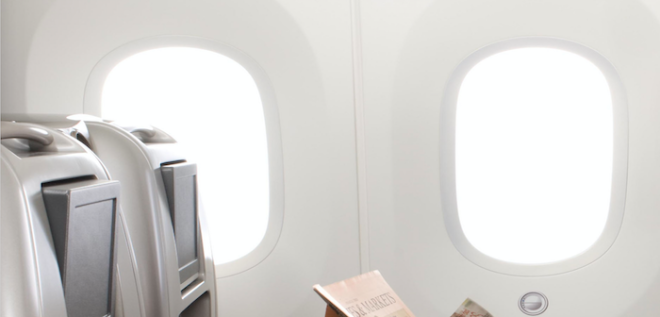
Global Aerospace Plastics Market is projected to grow at an impressive rate through 2028 due to increased demand in the electronics industry. In the Consumer Electronics market, volume is expected to amount to 4,700 million units by 2027.
Over the next few years, the aerospace plastics market is anticipated to be driven by the rising demand for plastics in various aerospace applications, including cabin interiors, structural elements, electrical electronics and control panels, windows, windshields, and canopies.
Performance and economy are directly impacted by overall airplane weight reduction. Additionally, it is predicted that a commercial airplane’s lifetime fuel running costs will be eliminated with a weight decrease of 1 kilogram (kg). Plastics are employed in place of aluminum and steel parts because they are lightweight and highly durable, increasing their proportion in the overall structure of an airplane.
The United States is regarded as the market leader in the aerospace sector worldwide, according to the International Trade Administration of the U.S. Department of Commerce.
Browse XX market data Figures spread through XXX Pages and an in-depth TOC on the “Global Aerospace Plastics Market” @ https://www.techsciresearch.com/report/aerospace-plastics-market/4054.html
The nation is home to several aircraft producers, including Boeing, Lockheed Martin Corporation, Gulfstream Aerospace Corporation, and Airbus Helicopters, Inc., which has helped the aerospace industry flourish there. The Federal Aviation Administration has been mandated by the Continuous Lower Energy, Emissions and Noise (CLEEN) Program, to take actions to reduce noise and aviation emissions and increase fuel efficiency by 20%.
Growing Demand for Modernization and Expansion of Fleet Facility
Due to fleet expansion and modernization initiatives, the military, commercial, general aviation, and space industries’ respective applications are responsible for driving the market’s rising demand for new aircraft. Several rules and specifications, including UL94, FAR 25.853, ASTM, DFARs, MIL-PRF-5425, MIL-PRF-8184, and MIL-PRF-25690, must be followed by aerospace-grade polymers.
The high R&D costs resulting from the manufacturers’ strict criteria prevent new players from entering the market without the necessary technological know-how for making aerospace-grade polymers. Furthermore, it is anticipated that the recent COVID-19-related interruption in the global raw material supply chain may temporarily impede the growth of the market under consideration during the projection period.
Aerospace Plastics producers are expected to benefit from rising aircraft production and sales, particularly in developing nations. Leading manufacturers like Airbus and Boeing are significantly expanding the size of their global aircraft fleets, which drives the Aerospace Plastics market’s revenue growth. The demand for MRO (maintenance, repair, and overhaul) of various components, parts, and systems is anticipated to significantly increase as more aircraft are put into service; this is anticipated to augment the development in demand for Aerospace Plastics.
Download Free Sample Report @ https://www.techsciresearch.com/sample-report.aspx?cid=4054
Customers can also request 10% free customization on this report.
Growing Demand for Urbanization and Luxurious Facility
Global air passenger traffic growth has increased demand for commercial aircraft, which has led to higher levels of commercial aircraft production. Future market expansion for Aerospace Plastics is anticipated to be fueled by the global rise in urbanization. Urbanization describes the flow of people from rural to urban areas and the rise in urban population density. For instance, the United Nations Department of Economic and Social Affairs projects that by 2050, 2.5 billion people, or 68% of the world’s population, will reside in urban regions. Therefore, the market for Aerospace Plastics is expanding due to increased global urbanization.
Recent Developments
- In February 2021, Boeing extended its contract with Diehl Aerospace GmbH, a division of the industry-leading supplier of airplane components, for the supply of the B787 Dreamliner interior lighting system. The present agreement ends in 2022, but the extension extends the relationship to 2032.
Market Segmentation
The Global Aerospace Plastics market is segmented by polymer type, aircraft type, and by application. Based on resin type, the market is segmented into polyetheretherketone (PEEK), polyphenyl sulfide (PPS), polycarbonate (PC), acrylonitrile butadiene styrene (ABS), polymethyl methacrylate (PMMA), others. Based on by aircraft type, the market is segmented into commercial and military aircraft. Based on application, the market is segmented into Flight Deck & Cockpit, Cabin Interiors, and Structures.
You may also read:
Sealants Market Forecast Evaluating Future Demands and Growth Opportunities
Diesel Particulate Filter Market Robust Growth Expected 7.4% CAGR & USD 23 Billion by 2028
Anti-Lock Braking System Market Forecasted Growth at 8.9% CAGR Through 2028
Automotive Sun Visor Market USD 2.1 Billion Forecast, Size, and Trends
Automotive Engine Valve Market Anticipated Growth USD 24.5 Billion by 2028
Table of Content-Aerospace Plastics Market
- Product Overview
1.1. Market Definition
1.2. Scope of the Market
1.2.1. Markets Covered
1.2.2. Years Considered for Study
1.2.3. Key Market Segmentations
- Research Methodology
2.1. Objective of the Study
2.2. Baseline Methodology
2.3. Key Industry Partners
2.4. Major Association and Secondary Sources
2.5. Forecasting Methodology
2.6. Data Triangulation & Validation
2.7. Assumptions and Limitations
- Executive Summary
3.1. Overview of the Market
3.2. Overview of Key Market Segmentations
3.3. Overview of Key Market Players
3.4. Overview of Key Regions/Countries
3.5. Overview of Market Drivers, Challenges, and Trends
- Voice of Customer
- Global Aerospace Plastics Market Outlook
5.1. Market Size & Forecast
5.1.1. By Value & Volume
5.2. Market Share & Forecast
5.2.1. By Polymer Type (Polyetheretherketone (PEEK), Polyphenyl Sulfide (PPS), Polycarbonate (PC), Acrylonitrile Butadiene Styrene (ABS), Polymethyl Methacrylate (PMMA), Others)
5.2.2. By Aircraft Type (Commercial and Military Aircrafts)
5.2.3. By Application (Flight Deck & Cockpit, Cabin Interiors and Structures)
5.2.4. By Region (North America, Europe, Asia Pacific, South America, Middle East & Africa)
5.2.5. By Company (2022)
5.3. Market Map
5.3.1. By Polymer Type
5.3.2. By Aircraft Type
5.3.3. By Application
5.3.4. By Region
5.4. Pricing Analysis
- North America Aerospace Plastics Market Outlook
6.1. Market Size & Forecast
6.1.1. By Value & Volume
6.2. Market Share & Forecast
6.2.1. By Polymer Type
6.2.2. By Aircraft Type
6.2.3. By Application
6.2.4. By Country
6.3. Pricing Analysis
